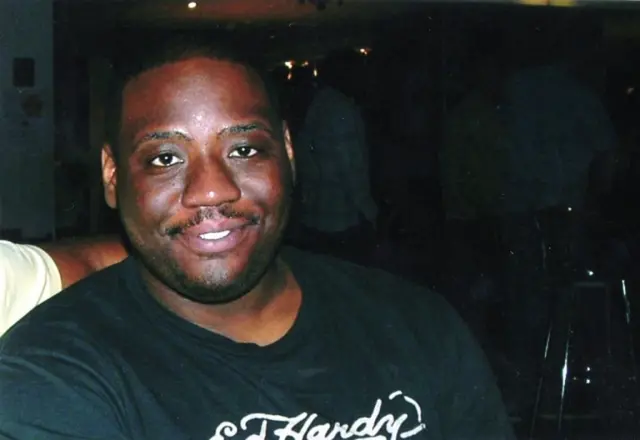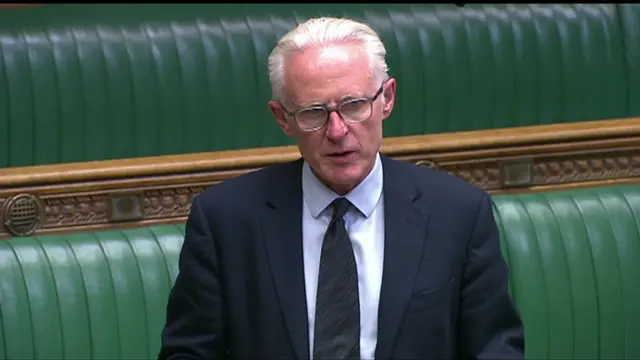What happens now that a deal's been done?published at 18:49 GMT 30 December 2020
The UK and EU begin a new relationship on 1 January 2021.
Read MoreMPs are debating private members' bills
Richard Morris and Lucy Webster
The UK and EU begin a new relationship on 1 January 2021.
Read MoreMultiple areas in Salisbury and Amesbury are cordoned off as police continue their investigation.
Read MoreTheresa May bids to resolve splits in her cabinet over the UK's future relationship with the EU.
Read MoreThat's where we leave today's coverage of private members' bills.
Join us again next week, for more in Parliament.
Parliamentary reporters tweet
Allow X content?
This article contains content provided by X. We ask for your permission before anything is loaded, as they may be using cookies and other technologies. You may want to read X’s cookie policy, external and privacy policy, external before accepting. To view this content choose ‘accept and continue’.
Commons tweets
Allow X content?
This article contains content provided by X. We ask for your permission before anything is loaded, as they may be using cookies and other technologies. You may want to read X’s cookie policy, external and privacy policy, external before accepting. To view this content choose ‘accept and continue’.
Prisons (Interference with Wireless Telegraphy) Bill
 House of Commons
House of Commons
Parliament
MPs now move on to the Prisons (Interference with Wireless Telegraphy) Bill, being proposed by Conservative MP Maria Caulfield.
This bill creates new powers to authorise the disruption of unlawful mobile phone use in prisons. The government would be able to authorise interference with wireless telegraphy by public communications providers.
In fact, the provisions in this bill replicate the Prisons and Courts Bill 2016-17, which fell at the dissolution of Parliament - and the government is supporting today's bill, as not all of the Prisons and Courts Bill has been covered by new bills.
Mental Health Units (Use of Force) Bill
 House of Commons
House of Commons
Parliament
Steve Reed pays tribute to the parents of Olaseni Lewis, and the bill passes third reading.
Commons tweets
Allow X content?
This article contains content provided by X. We ask for your permission before anything is loaded, as they may be using cookies and other technologies. You may want to read X’s cookie policy, external and privacy policy, external before accepting. To view this content choose ‘accept and continue’.
BBC parliamentary correspondent tweets
Allow X content?
This article contains content provided by X. We ask for your permission before anything is loaded, as they may be using cookies and other technologies. You may want to read X’s cookie policy, external and privacy policy, external before accepting. To view this content choose ‘accept and continue’.
Mental Health Units (Use of Force) Bill
 House of Commons
House of Commons
Parliament
 Image source, Hoc
Image source, HocThe bill is designed to improve oversight over force used in mental health units.
The Mental Health Units (Use of Force) Bill is known as "Seni's Law" and it has been proposed by Steve Reed, the Labour MP.
Olaseni Lewis, 23, died in 2010 soon after being restrained by 11 officers in Bethlem Royal Hospital, Beckenham.
A misconduct investigation into his death was dismissed.
Under the new legislation, hospitals will be required to publish data on how and when physical force is used.
The bill would also make sure any non-natural death in a mental health unit triggers an independent inquiry. It also makes provision about police body cameras in relation to people in mental health units.
It's a day for private members' bills in the Commons today.
MPs are currently debating the Mental Health Units (Use of Force) Bill at third reading.
You can watch the proceedings using the video tab above - and, of course, on BBC Parliament.
Charlie Rowley and Dawn Sturgess are critically ill after being exposed to the Novichok nerve agent.
Read MoreStatement on Amesbury incident
 House of Commons
House of Commons
Parliament
Allow X content?
This article contains content provided by X. We ask for your permission before anything is loaded, as they may be using cookies and other technologies. You may want to read X’s cookie policy, external and privacy policy, external before accepting. To view this content choose ‘accept and continue’.
Home Secretary Sajid Javid has called on the Russian government to explain what has happened, after two people were exposed to the Novichok nerve agent in Wiltshire.
Charlie Rowley, 45, and Dawn Sturgess, 44, collapsed at a house in Amesbury, Wiltshire, on Saturday and remain critically ill.
Sajid Javid said the agent was the same as that used on ex-Russian spy Sergei Skripal and his daughter in March.
In a statement to MPs, Mr Javid said: "It is now time that the Russian state comes forward and explains exactly what has gone on."
He said the "strong working assumption" was that the couple came into contact with the nerve agent in a different location to the sites which had been part of the clean-up operation in near-by Salisbury after the Skripal poisoning.
"It is completely unacceptable for our people to be either deliberate or accidental targets, or for our streets, our parks, our towns, to be dumping grounds for poison," he added.
Transforming care debate
 House of Commons
House of Commons
Parliament
Health Minister Caroline Dineage says that people with learning disabilites deserve satisfying lives.
She says that NHS England want to reduce the number of adults with learning disabilities in inpatient wards by 35% next month.
She says this is a special programme, and these adults need their care reviewed.
The minister says their care needs to be personalised and it needs to be enduring.
She says £50m will be given to clinical communication groups so they can invest in community care.
She says there will be relentless progress on improvement and she thinks training is a key part of that.
Ms Dineage says that NHS trusts should already be ensuring that services are available to those with autism.
She says the Department of Education have funded training on autism for teachers.
The minister says society has "failed people with learning difficulties for too many years".
Transforming care debate
 House of Commons
House of Commons
Parliament
Labour's Paula Sheriff, shadow social care and mental health minister, says the programme is not delivering the promised improvements.
She says too many adults with learning difficulties are living in separate units and not with their families and friends.
She says seven years after the Winterbourne scandal there is a "startling lack of progress" in reducing the number of adults in inpatient units.
Ms Sheriff says there are 2,400 adults with learning disabilities in inpatient units and the number of children in these units has also increased.
She goes onto say that in the NHS workforce the number of nurses with a learning disability has gone down by a third.
Transforming care debate
 House of Commons
House of Commons
Parliament
Labour MP Helen Hayes says little progress has been made on care for autistic people.
All the failures that led to the Winterbourne scandal are still possible, she says.
She says private hospitals have no incentive to discharge, and there can be very little scrutiny of the services they are offering.
Ms Hayes says no adult with learning difficulties should live in a hospital, they should be living in homes.
She says the support autistic people need in schools and the NHS isn't there.
Autistic people should be living close to family and friends, not locked away receiving high doses of medication, she says.
"They should live life to the full with dignity," she concludes.
Transforming care debate
 House of Commons
House of Commons
Parliament
Dame Cheryl Gillian, who chairs the parliamentary group on autism. says the Transforming Care Programme was developed in response to the "shocking scandal" in Winterbourne.
She says the government has committed to move 3,000 adults into community based support away from hospitals.However 2,500 of these adults are still in hospital and 61% of these adults in care have been there for over two years, some over ten years.
More than 22% of the adults are placed 100km from their home, she says.
She says the success of the programme relies on the right support from the community.
She says 40% of adults in the Transforming Care Programme are autistic, arguing that if the Transforming Care Programme doesn't work for autistic people, it wont work.
She says there needs to be a better understanding of autism. She praises the Civil Service Fast Stream recruitment programme for understanding the needs of its autistic employees.
Dame Cheryl says NHS England needs to understand the needs of autistic people.
She says autistic people struggle to find mental health support that they require, and that NHS staff must have the right training to treat autistic people.
Transforming care debate
 House of Commons
House of Commons
Parliament
 Image source, HoC
Image source, HoCLiberal Democrat health spokesperson Norman Lamb says that it is "sobering" to be debating this on the 70th anniversary of the NHS.
"The record has not been a good one," he says, adding that "the system has let down too many individuals and families".
The sector has "a lot of work to do" to repair the damage that has been done.
He says the Transforming Care Programme had to be introduced as a result of the scandal of abuses at the private hospital, Winterbourne View, operated by Castlebeck.
He adds that for people who go into institutions, their families "do not know their release date" and are "treated, bluntly, as second class citizens".
"Not enough has changed since then," he states, referring to the Winterbourne View case arising in 2011. He says it is worse that this is not as a result of asking for "vast amounts" of extra spending on the service.
"This is all about the need to shift resources from institutional care to community support," he states.
With the debate on proxy voting having been pulled, MPs now move to a backbench debate on the future of the NHS Transforming Care programme.
The debate was called by Liberal Democrat MP Norman Lamb.
The programme was introduced in response to concerns about the care received by people with learning disabilities.